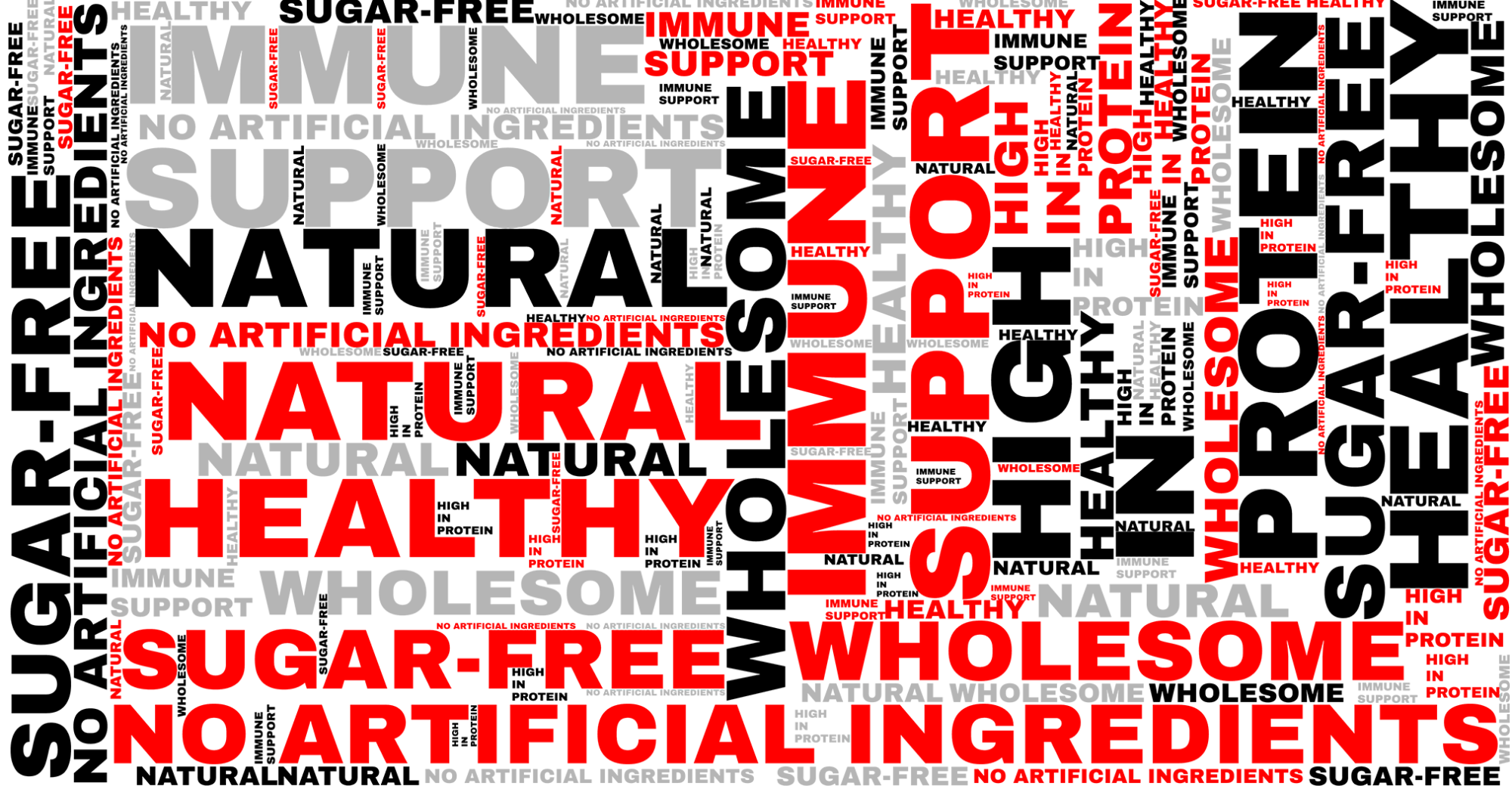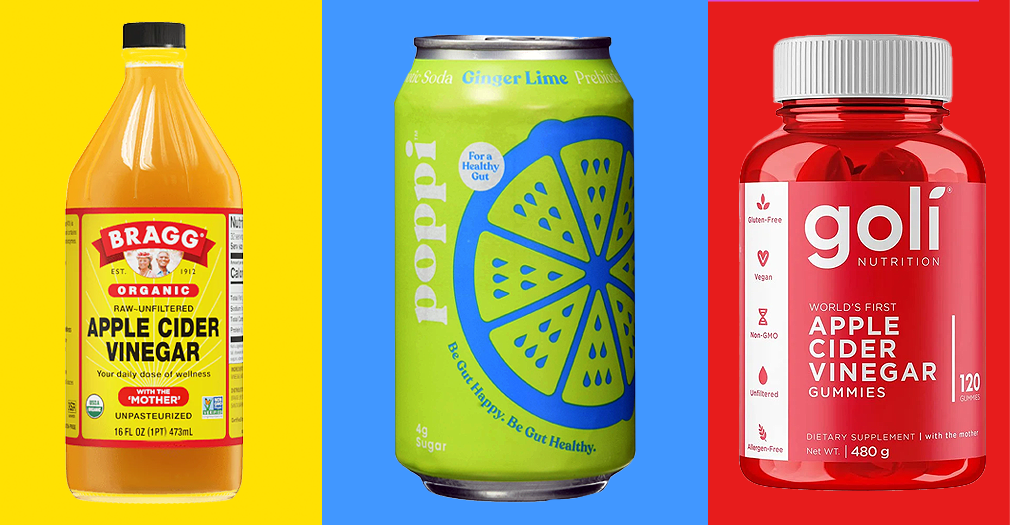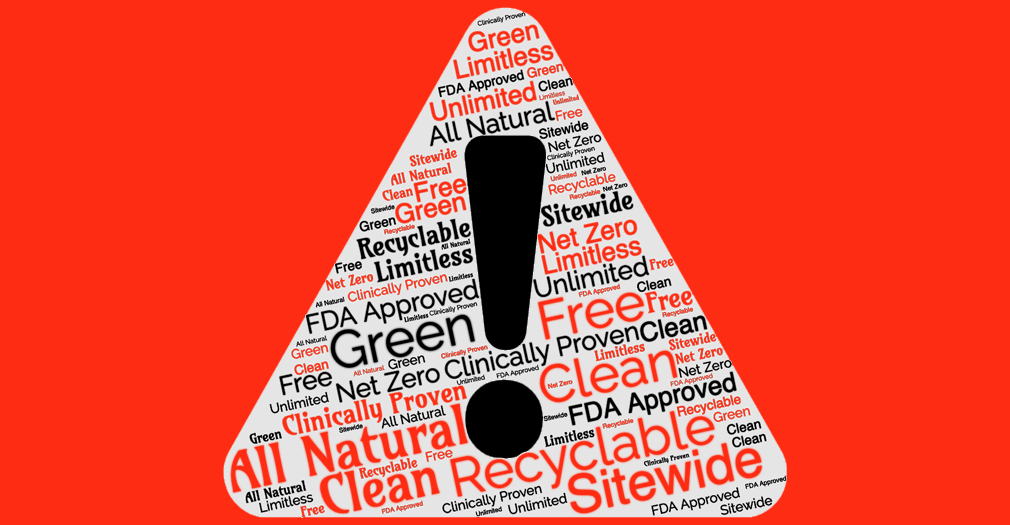
CATrends: Nutriwashing
Lawsuits allege foods and beverages aren’t as healthy as you might think.
TINA.org explores the divide between the marketing and the science.
|
UPDATE: 8/12/24: Despite Bragg’s initial removal of several testimonials making disease-treatment claims about its ACV products from its website following a TINA.org inquiry, numerous other disease-treatment claims remain, including testimonials that claim Bragg products can treat or alleviate the symptoms of acid reflux, gout, diabetes, eczema, psoriasis, bloating, inflammation, high cholesterol and Crohn’s disease, among other diseases and medical conditions. TINA.org has repeatedly warned Bragg that it must have competent and reliable scientific evidence to substantiate such health claims without running afoul of the law. The company has yet to respond to any of our inquiries. Our original article follows.
Apple cider vinegar supplements are promoted as able to help with everything from weight loss and digestive problems to chronic disease.
But is there any truth to these claims? Or are the marketers of these products misleading consumers on their benefits?
TINA.org took a closer look at three ACV brands selling an assortment of products – including a gummy, a drink, a capsule and a “prebiotic soda” – and found a divide between the marketing and the science.
We’ll start with the ads.
The marketing
ACV is made via fermentation. First, yeast digests the sugars in apples and converts them into alcohol, then bacteria turn the alcohol into acetic acid, the main ingredient in ACV. Acetic acid gives ACV its pungent taste and odor and, according to some ACV supplement marketers, its health benefits.
Bragg, which sells ACV in liquid and capsule form, both of which contain 750 milligrams of acetic acid per serving, claims on its website that:
Studies indicate that a daily dose of 750 -1500 mg of acetic acid are associated with key health benefits such as maintaining healthy weight, healthy blood sugar levels and healthy cholesterol levels.
Then there are the customer testimonials on Bragg’s website, which claim that the company’s ACV products not only suppress appetite, lower bad cholesterol levels and improve blood sugar levels, but also help with a number of medical conditions, including acid reflux, eczema, kidney stones and gout.
If you’re wondering if Bragg is responsible for the content of its customer testimonials, the answer is yes.
According to the FTC’s Health Products Compliance Guidance:
Advertisers are liable for the misleading use of endorsements, whether in traditional advertising media like TV and print, on the internet, in social media, or in other forms of marketing. An overarching principle is that advertisers should not make claims through consumer testimonials or expert endorsements that would be deceptive or couldn’t be substantiated if the advertiser made them directly.
Bragg, which is backed by the pop star Katy Perry, also attributes health benefits to “The Mother,” which it describes as a cloudy substance in its ACV drink consisting of “a matrix of prebiotics, proteins, enzymes, minerals, polyphenols, vitamins and other compounds produced by friendly bacteria and unfiltered apple juice.”
Bragg isn’t alone in promoting the popular home remedy.
There’s also Goli, which sells a gummy made with ACV powder and states on its website that “Apple Cider Vinegar has been used for centuries as a traditional remedy for digestion and gut health.”
Poppi is similarly promoted for gut health, with cans of the “prebiotic soda” indicating its use “for a healthy gut.” But the soda is also marketed to treat the symptoms of diseases like polycystic ovary syndrome, or PCOS, and endometriosis in TikTok videos that feature the cofounder Allison Ellsworth.
The science
None of the ACV products TINA.org reviewed linked to any studies supporting their claims on their websites.
While some people say that drinking ACV before and after meals reduces their symptoms of acid reflux, experts report that there’s no real science to support marketing claims that ACV supplements are effective for acid reflux or other digestive problems.
As for claims that the main ingredient in ACV curbs cravings, potentially leading to weight loss, a 2022 literature review found that while some short-term studies reported that vinegar or acetic acid consumption suppressed appetite, none of the long-term studies reviewed were able to replicate these promising results.
“Further research is needed to determine whether oral vinegar consumption may result in long-term appetite reduction, decrease energy intake, and potentially aid in weight loss,” the authors concluded.
Another literature review, conducted in 2019, found “considerable support” for acetic acid having a positive effect on blood glucose levels, but only “when combined with carbohydrate-rich meals.” In other words, acetic acid’s ability to lower blood sugar levels seems directly tied to what you eat.
Or, when it comes to controlling cholesterol levels, how much you eat: A 2018 study indicated that apple cider vinegar consumption, along with a reduced calorie diet, can, among other things, decrease cholesterol levels in overweight and obese individuals.
Finally, with regard to claims that these ACV products treat conditions like PCOS, a common hormonal disorder in women of childbearing age for which there is no cure, not only is the scientific backup lacking, but as drug claims, they require FDA approval in order to not run afoul of the law. And that is something that none of these companies have.
Then there’s this: A lawsuit filed last week accuses Poppi of false advertising because its prebiotic soda allegedly doesn’t contain enough prebiotic fiber to support any “meaningful gut health benefits.”
The bottom line
Consumers should consult with their health care provider if they are considering taking an ACV supplement, especially as ACV has been linked to a number of potential side effects including drug interactions and erosion of tooth enamel.
TINA.org reached out to Bragg, Goli and Poppi for comment. Check back for updates.
Find more of our coverage on supplements here.
Lawsuits allege foods and beverages aren’t as healthy as you might think.
TINA.org joins push for more transparency in food labeling.
These definitions are a joke.


